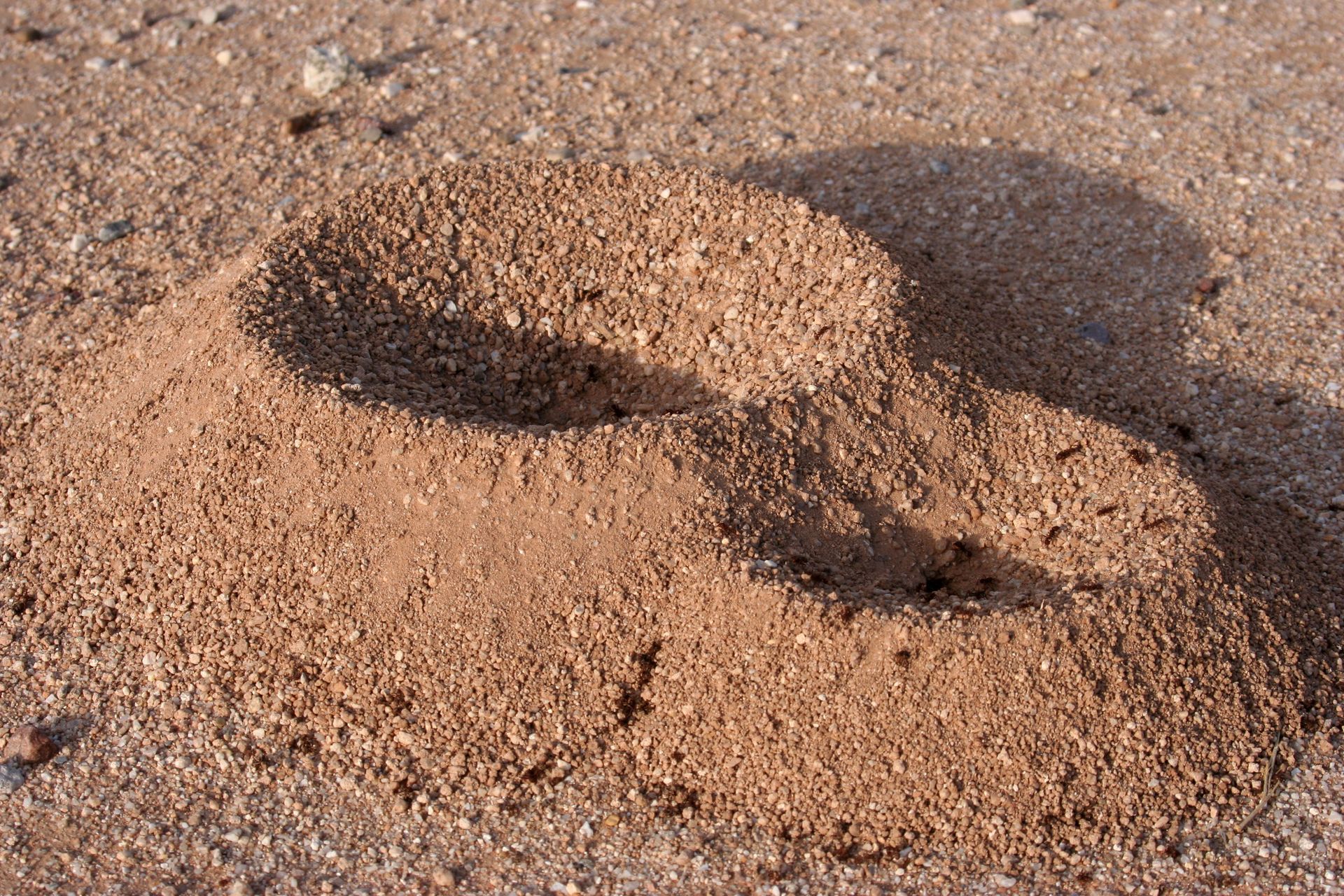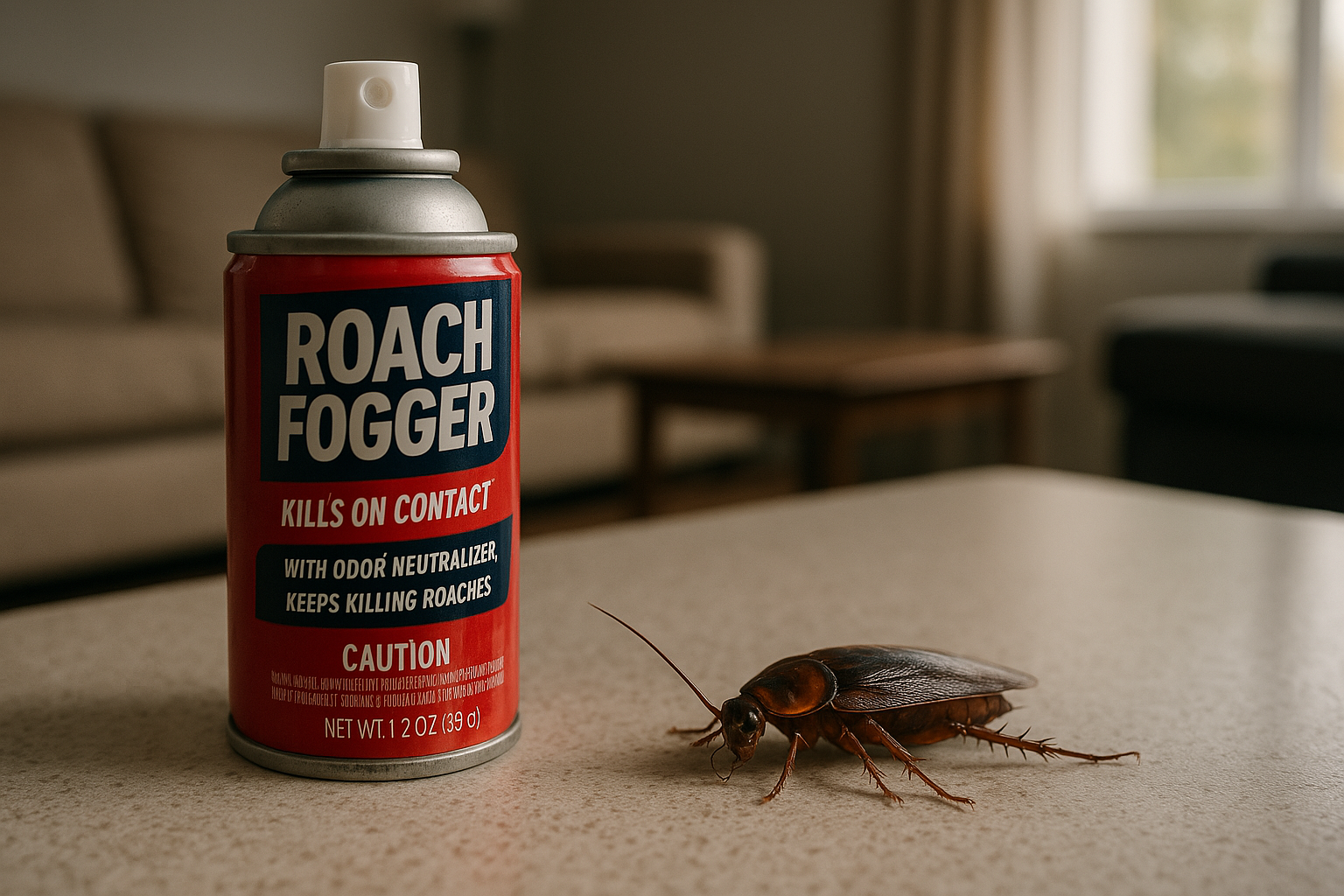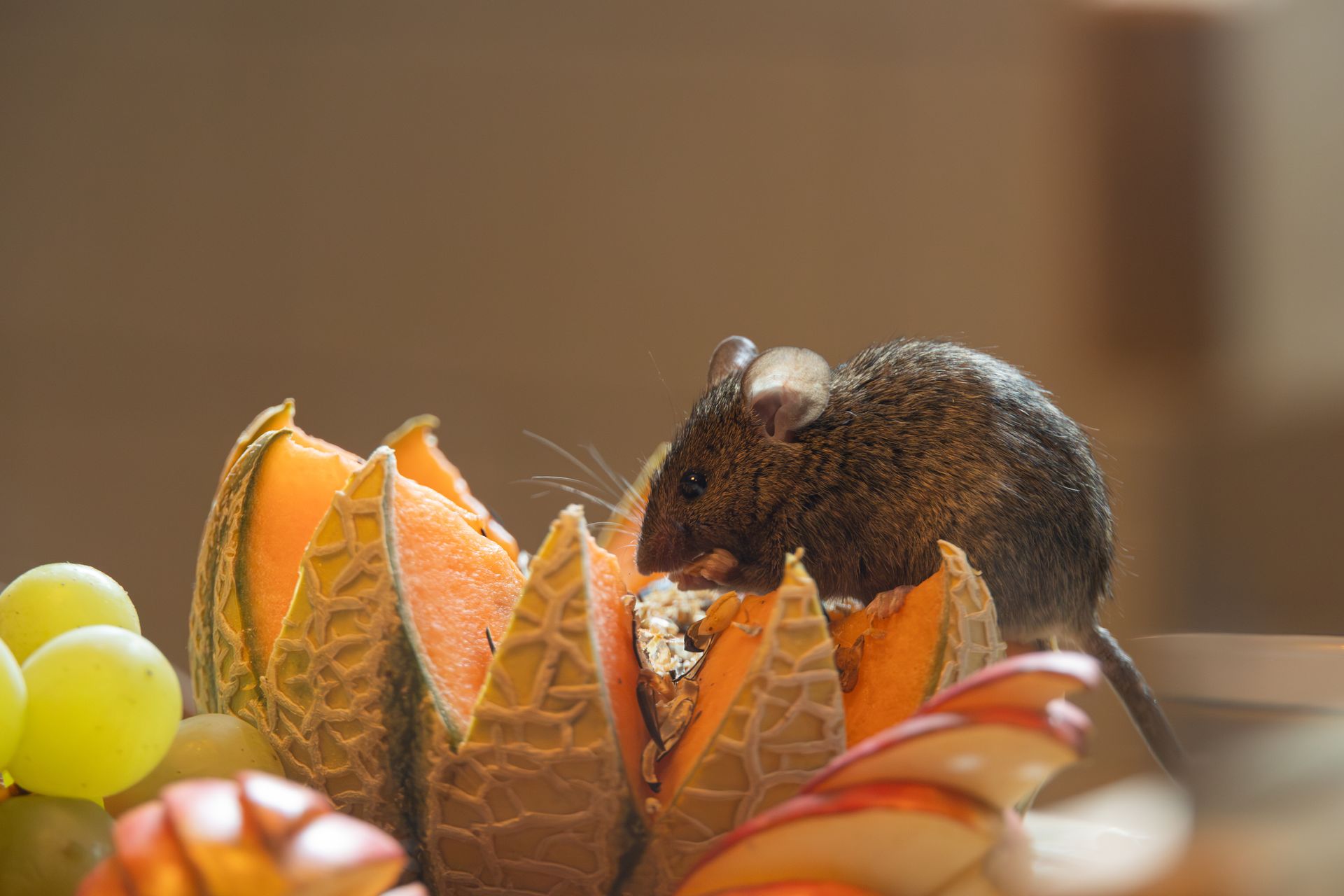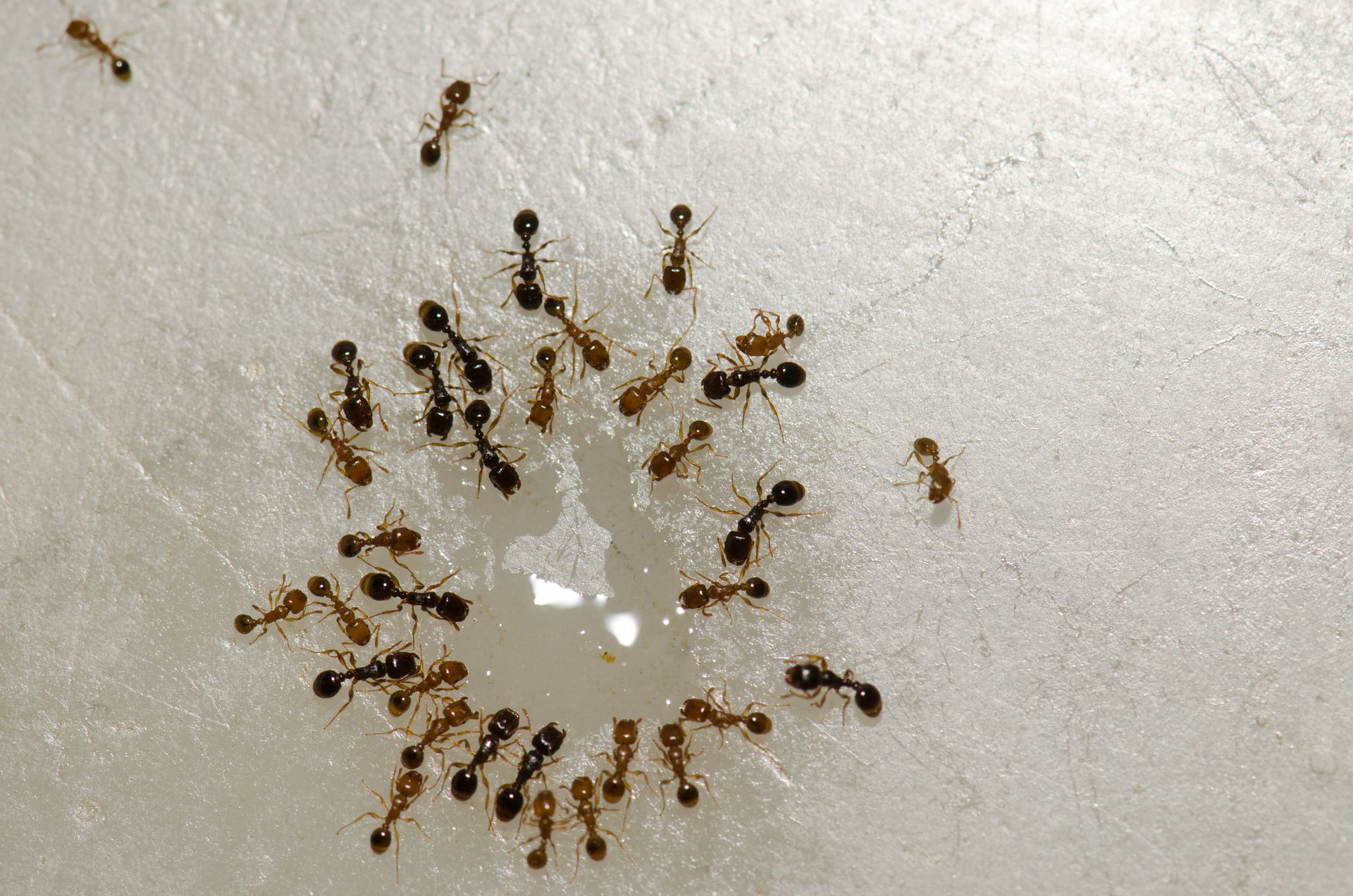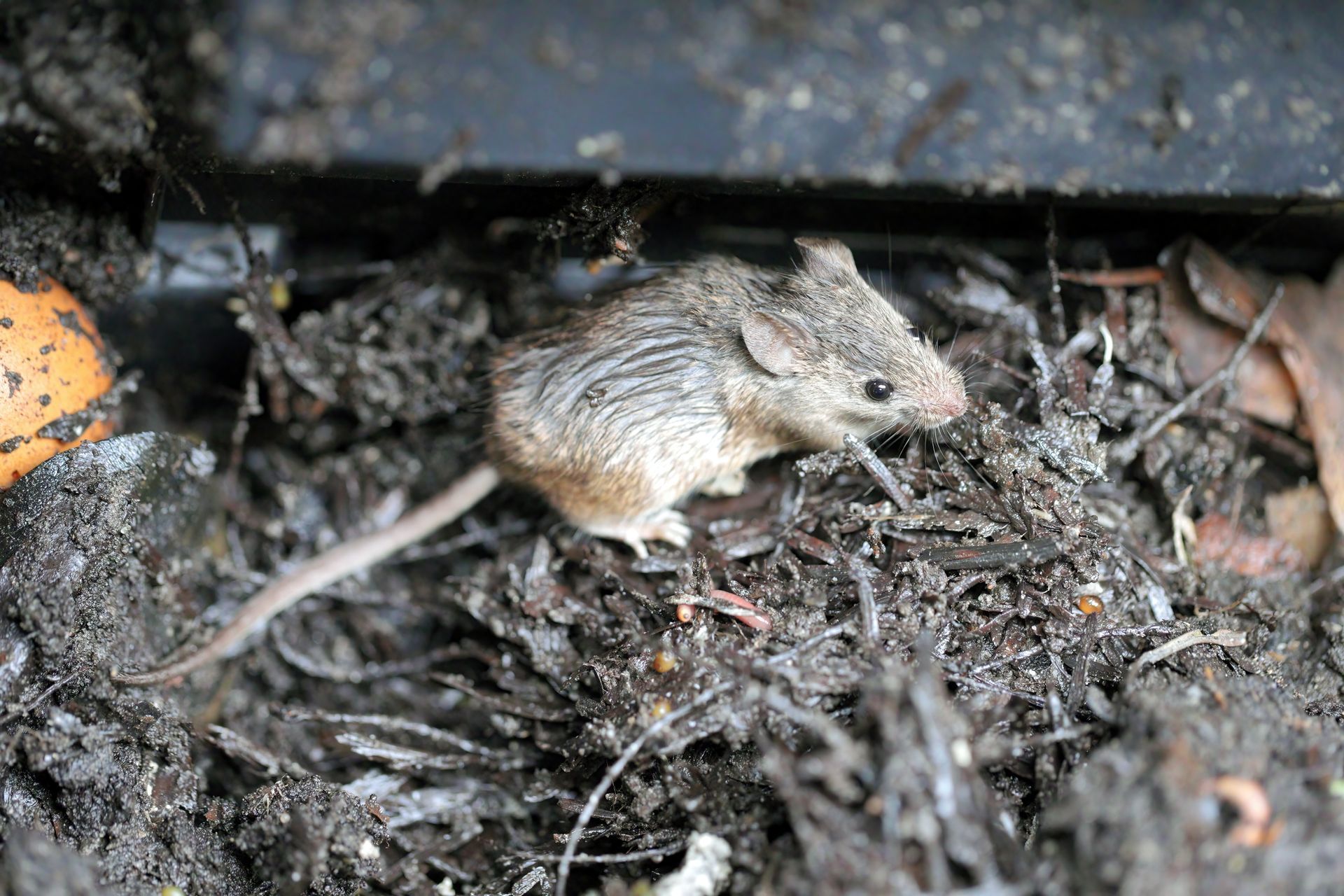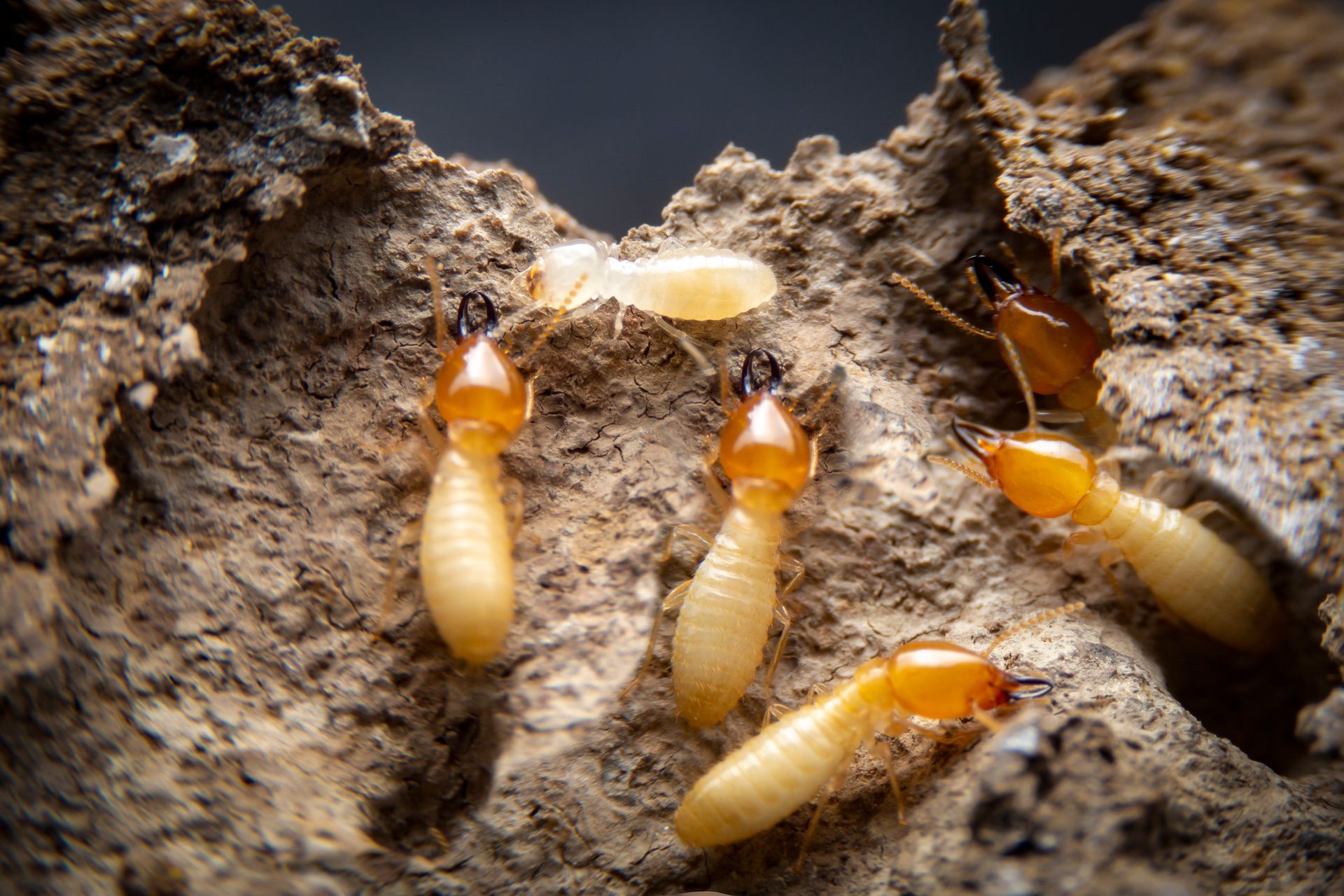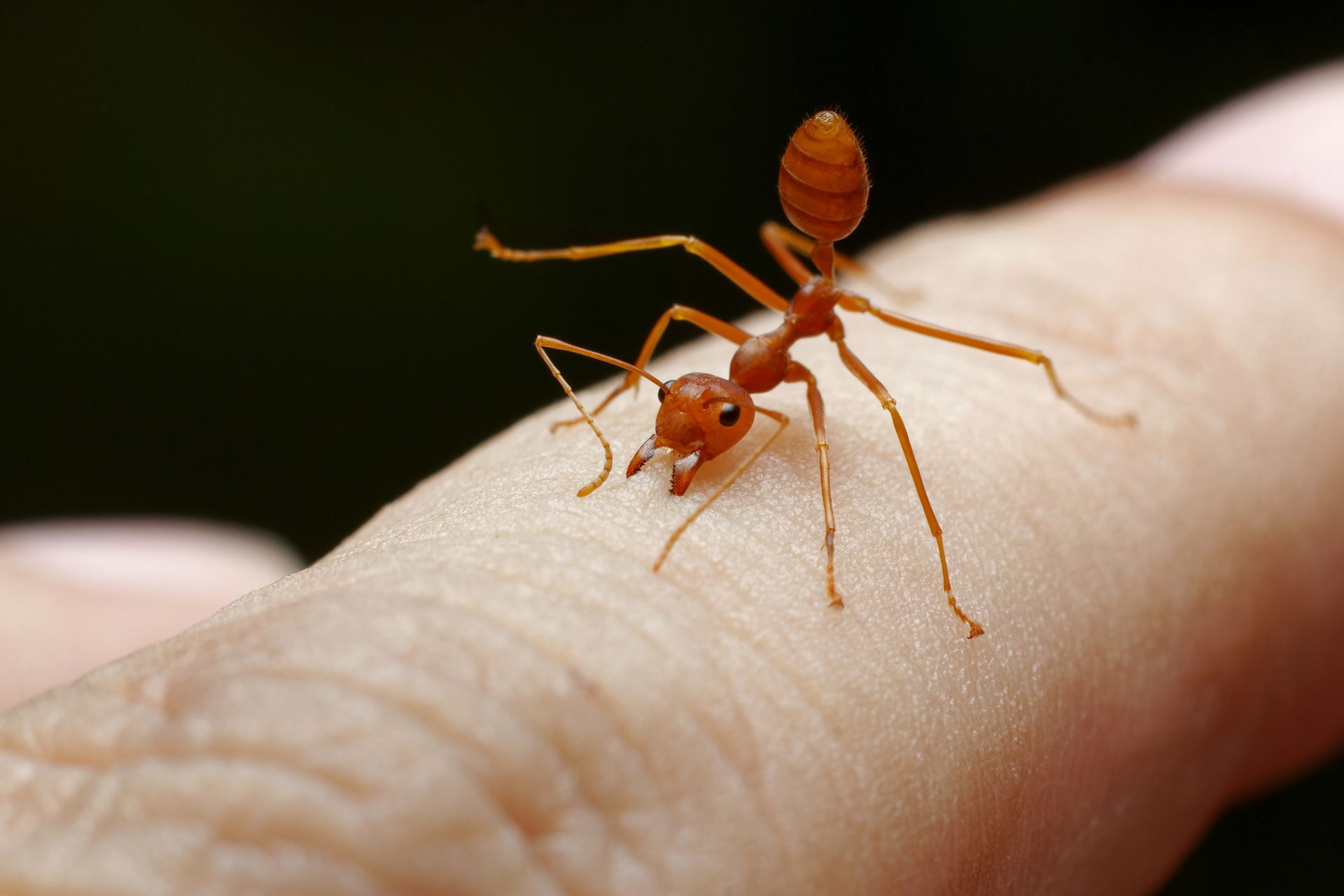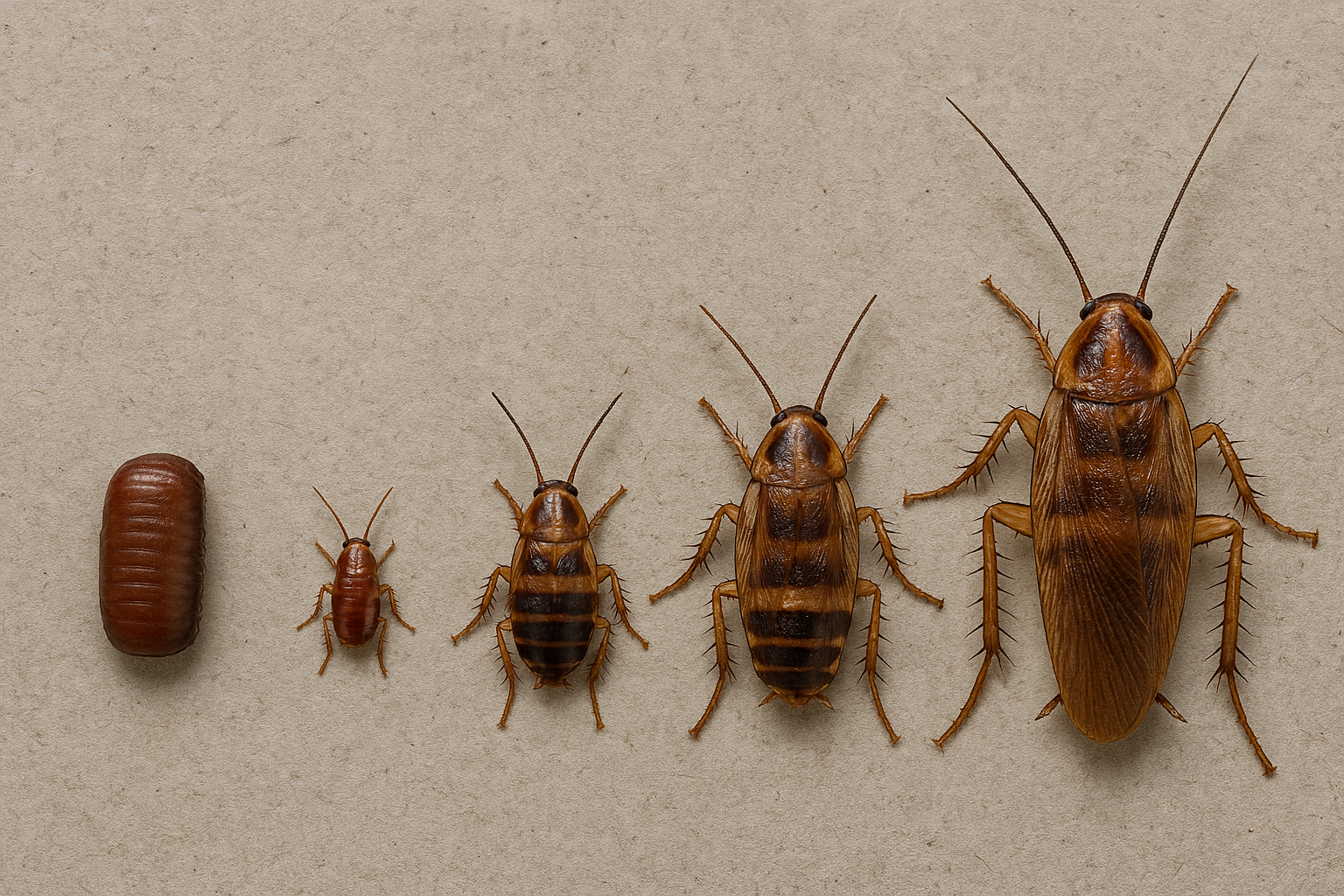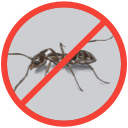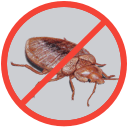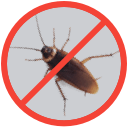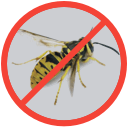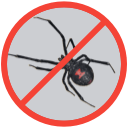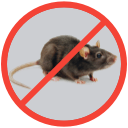When Are Wasps Most Active?
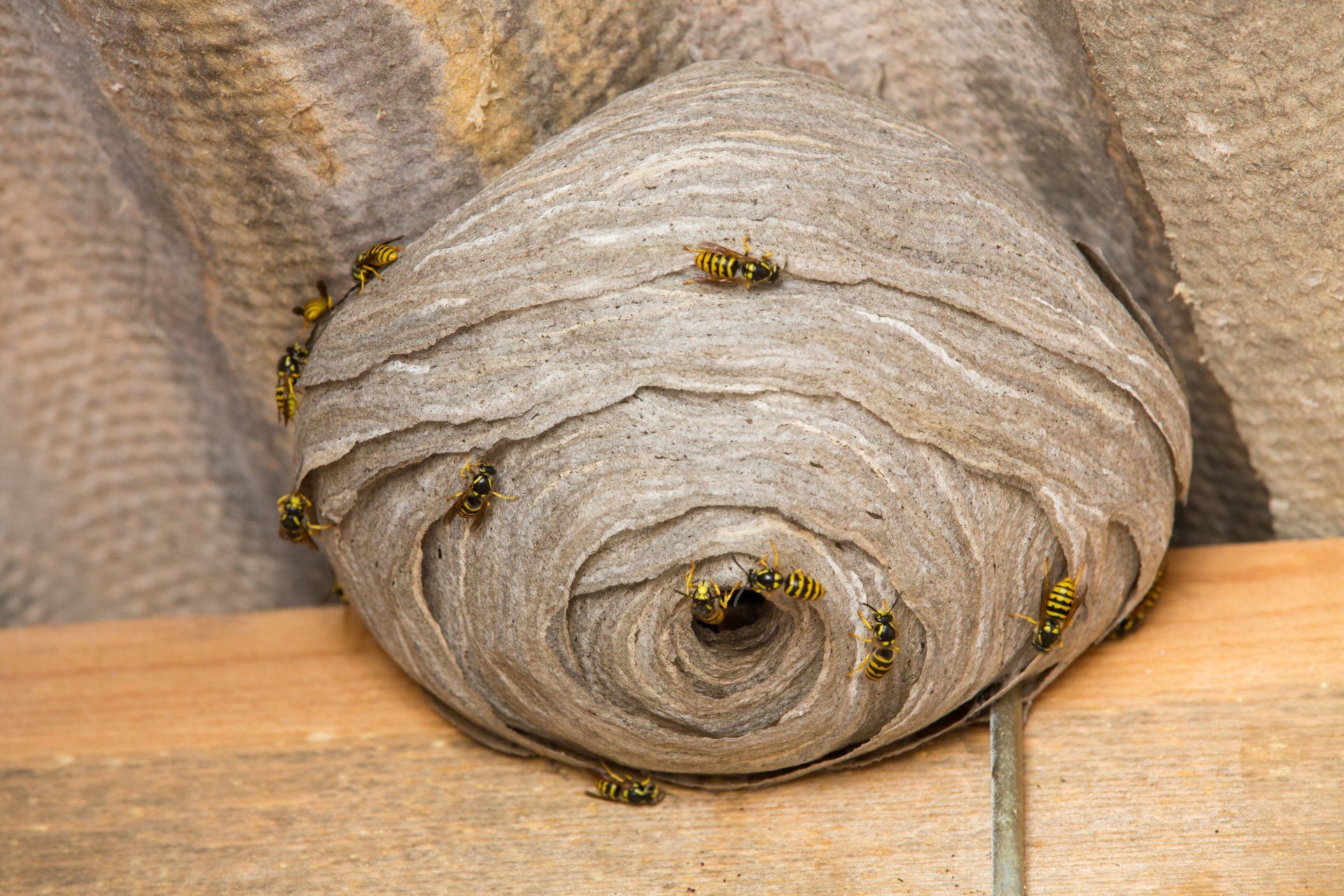
Stinging insects like wasps, hornets, and yellow jackets are most active through the summer when the weather is ideal, and food is plentiful. Wasps will start their annual cycle of reproduction and growth in the spring and stay active throughout the late summer months until the fall when temperatures start to cool. Wasps are also most active at mid-day when it’s warm and tend to go back to their nests when the sun goes down. This ultimately equates to wasps and other stinging insects being most active when people are enjoying themselves outside. Outdoor activities like picnics, potlucks, parties, and other large gatherings with food will most likely draw the attention of wasps in the area.
When Is Wasp Season
Wasp season generally runs from April through October when temperatures are optimal for peak wasp activity. Wasp activity will grow when the environment warms up and fade as the seasons change and temperatures drop. Wasps will spend all of the late spring and early summer months making sure that first rounds of eggs and larvae are taken care of to ensure that the colony grows to its maximum capacity. Then the colony hits its peak season during the hot summer months when the wasp colony population is at it’s highest. This is when wasp activity is constant as wasps search for food to sustain the colony and the queen. However, when temperatures start to drop, wasps will become more aggressive in their search for food because food resources become harder to find, and there are more adult wasps competing for the same resources. As temperatures start to drop, egg laying stops as the colony prepares for winter. By the time winter hits, the queen and any remaining wasps will go into a period of hibernation in order to survive the cold.
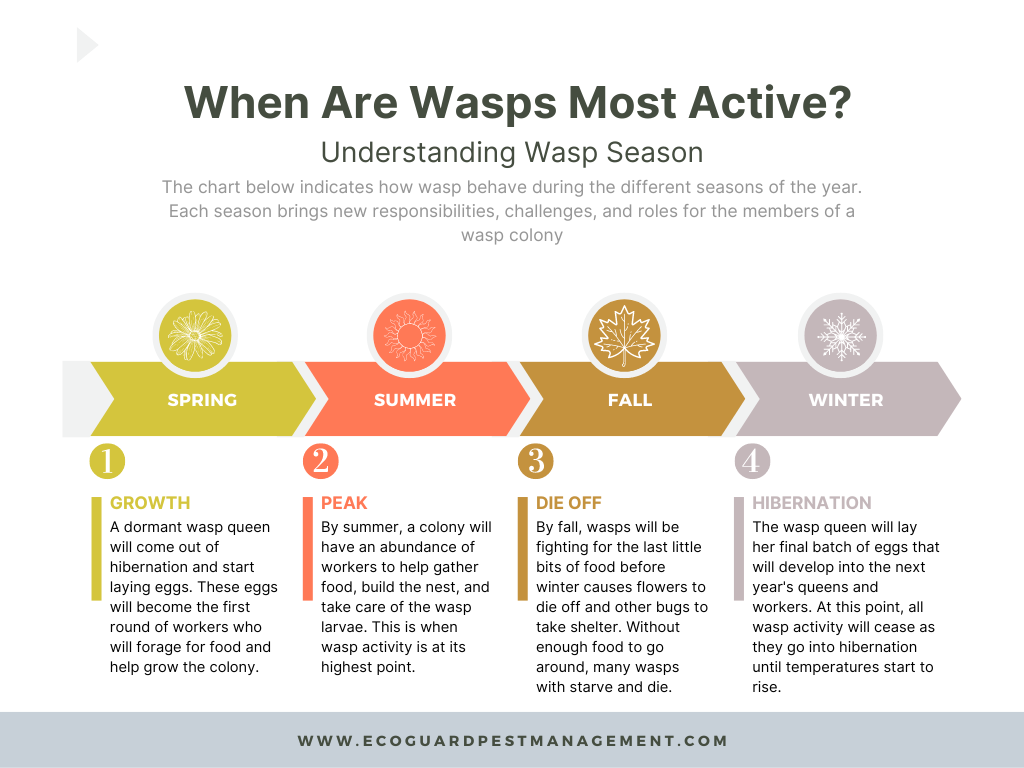
Wasps Create New Colonies in the Spring
Springtime is when new wasp colonies start to develop because the temperatures allow for wasps to come out from hibernation. Sometime between February and May, fertile female wasps will leave their hiding spots where they laid dormant during the cold months to go create a brand-new colony somewhere she decides is a safe place for eggs. Paper wasp queens will create a small nest that is typically made from wood pulp and saliva where she will lay her first batch of eggs. Over the next few weeks, these eggs hatch into workers that will develop into adult female workers who in turn help the rest of the colony grow. This first round of worker wasps will help provide food, care, and resources for the next batch of eggs while also increasing the size and capacity of the wasp nest.
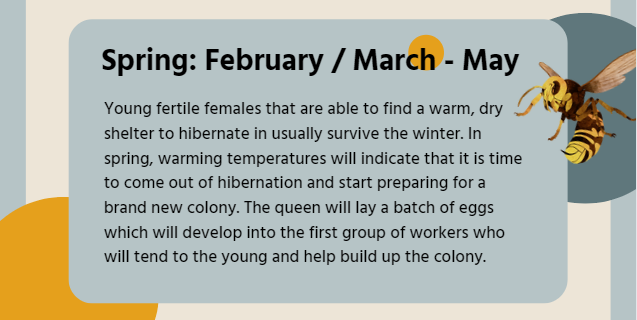
Where Do Wasps Create New Colonies?
Paper wasps are one of the more prevalent wasp species that homeowners must deal with. Small paper wasps’ nests will start to appear hanging in places that will most likely be undisturbed. Homeowners will often find these nests hanging in the eaves under their roof, near gutters, and outside of sheds and other outbuildings. Other species of wasps like hornets and yellow jackets will build nests in places like trees, bushes, and underground. The primary thing that wasps need is a consistent and stable source of food. If they are finding fruits, flowers, and trash around your property, they will build a nest close by. Wasps, like bees, are attracted to different and sometime very specific flowers. Wasps are selective pollinators so look for plants that wasps are attracted to in order to find where they are most active.
When is the Best Time to Spray a Wasps Nest?
Finding a wasp nest can be problematic if the wasps are active because wasps tend to be aggressive. This is why it is important to identify, treat, and remove a nest early on to avoid a larger problem later on in the year. The best time of year to spray a wasp nest is in the spring when the nest is most likely to be as small as possible to minimize the risk of a large swarm defending their colony. If the local climate reaches extreme cold temperatures during the winter, the other good time to spray a nest is when temperatures drop to their wintertime lows. This period guarantees that most of the wasps in a nest have frozen and died off. It is also important to spray for wasps at night when the workers have returned to the nest, so the entire colony is treated.
Wasps Are Most Aggressive in the Summer
Wasps are much more likely to be aggressive in peak summer months due to a higher number of wasps searching for food and resources. Increased wasp activity generally means that there is a higher risk of interaction with humans which results in a higher rate of wasp stings or attacks. Wasps are also a necessary beneficial insect that plays a role in their ecosystems. They eat other insects like aphids and caterpillars, but these pests’ populations get depleted as summer months pass. This means that wasps will start to forage for food where they can find it which sometimes leads wasps to human activities like picnics and parties. Unlike bees, who are generally docile when interacting with humans, some species of wasps are extremely territorial and will attack without provocation. They can sting multiple times without losing their stingers and release chemical pheromones which alert the rest of the nest to swarm something they perceive as a threat to their nest.
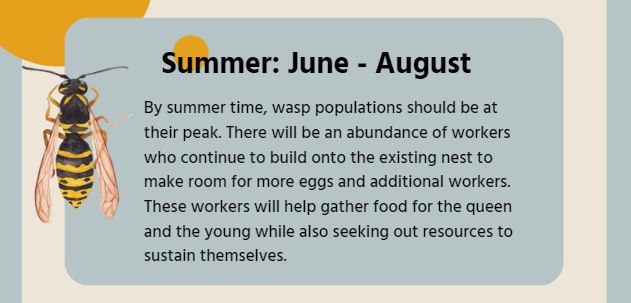
Wasp Activity Declines in the Fall
After peak summer months, wasp activity winds down in preparation for colder temperatures. After September and October, many of the workers wasps die off from dwindling resources which in turn reduce the availability of care for any remaining eggs. As a result, the queen will reduce the number of eggs being laid. The remaining eggs that are laid will serve a different function and become the next round of fertile wasps that will carry on into next season.
Throughout the year, the queen continues to produce infertile females that serve as workers that nurture the eggs and larvae. As the seasons change and temperatures drop, the queen will start to produce fertile female and male wasps to ensure that the next generation of wasps will survive. These fertile males and females will mate, and the new fertile females will leave the colony in search of a place to hibernate. Those females that survive winter will become queen wasps of their own colony once temperatures rise in spring.
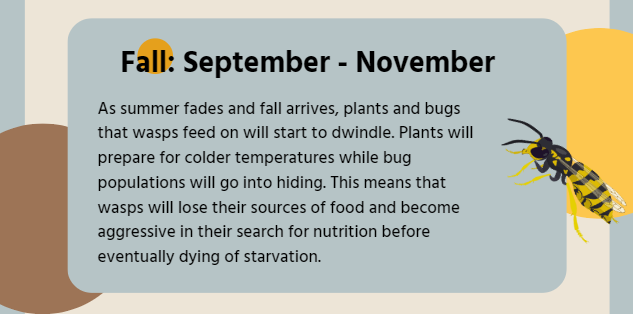
When Does Wasp Season End?
Stinging insect activity is seasonal because most wasps, hornets, and bees typically cannot survive in colder temperatures. Unlike bee colonies that hibernate inside their hives during the colder months, most wasps will die off when temperatures drop. Once the final round of eggs are laid that produce new fertile female wasps, the rest of the colony, including the older queen, will typically die off from the cold weather completing the wasp life cycle. After the queen dies, any remaining workers are left to fend for themselves without the need to care for eggs and larvae. This allows those wasps to stray from the nest and just forage for food until they die off from the elements.
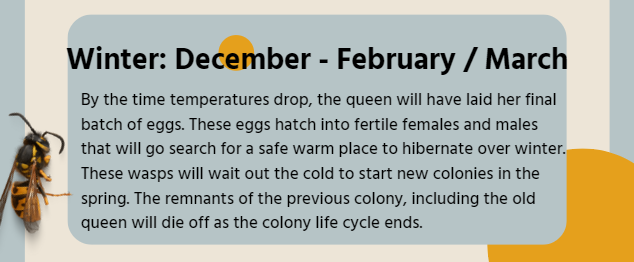
How is Climate Change Impacting Wasp Season?
Climate change appears to have both good and bad impacts of wasp populations. Due to warmer temperatures lasting for longer periods of time, wasps will have a longer season in which they can thrive. That being said, there have also been instances of temporary warm periods that occur too early in the spring which cause fertile females to come out of hibernation, only to die from starvation because resources are not abundant enough. The other damaging aspect of climate change is that there are periods of extreme heat during the peak summer months that cause wasps to overheat and die from the temperatures exceeding the wasp’s heat threshold.
Contact EcoGuard If You Need Wasp Pest Control
If you have seen wasps’ nests or wasp activity, it is important to treat the wasp nest to prevent an incident where wasp and human interaction can result in injury. Be sure to call EcoGuard Pest Management to schedule an inspection with one of our licensed and trained wasp control specialists to ensure that your wasp problem is treated. We can create a customized treatment plan designed to safely and effectively get rid of any wasps that may be presenting a problem. Let us help you get rid of wasps asap!


